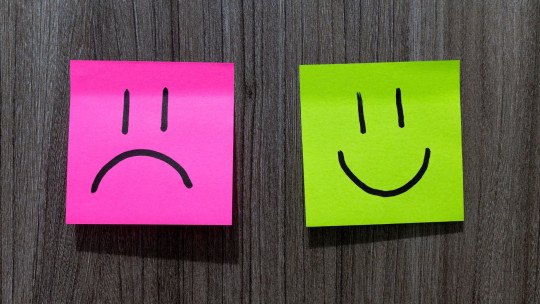The man of the 21st century is characterized by a more flexible, diverse and constantly evolving identity. Unlike previous generations, he faces fewer rigid expectations about how he should behave, allowing for greater freedom to redefine his masculinity.
More emotionally open, you have more space to express emotions that have historically been repressed, such as vulnerability, fear or sadness.. He recognizes that opening up emotionally does not make him less “masculine,” but rather enriches his relationships and allows him to better manage stress and anxiety. More and more men are concerned with understanding their emotions and how they influence their personal and professional relationships, which encourages clearer communication and greater empathy.
Breaking taboos of masculinity
On the other hand, many men grow up in environments where expressing emotions or vulnerability is considered a sign of weakness. In traditional societies, men are normalized to hide their emotions, especially sadness, anxiety and fear, and although the world continues to change, these types of pillars in education will remain for a long time.
From childhood, men are often taught that emotional strength and self-sufficiency are essential values. Expressing weakness or asking for help can be perceived as a “failure” in this regard. In fact, many girls or women copy and praise this “typically masculine” trait in order to be able to stand up for themselves in a man’s world.
Talking about deep emotions, especially with each other, can be perceived as risky. The possibility of being judged or seen as “weak” makes many prefer to remain silent. In general, male group conversations, and this has nothing to do with sexual identity, tend to revolve around “safe” topics like sports, work, or current events. Emotional or mental health issues such as lack of self-confidence or feelings of inadequacy often take a backseat.
Despite changes towards greater openness, many of them still find it difficult to talk about certain topics, both due to the persistence of stereotypes and social or personal pressures. It is very common to hear people in the office saying something strange when they understand that they share these feelings with others..
Although there is more and more talk about mental health, many men still feel that they must hide these problems, so as not to appear “weak” or “vulnerable.” The idea of ”keeping it together” may lead them to not share their emotional struggles. Loneliness is another recurring theme in men of any age; they experience shame when admitting that they feel alone or that they need company.
Women, due to their psychological makeup, are equipped with greater tools in terms of resolving the issue of feeling alone, after retirement from work, the departure of children or after a breakup or loss. This happens in any age group, that is, even in young women. There is a special type of resilience in them that allows them to find more support in friendships and different activities than in the case of men. Women’s friendship is more emotional or close. They are more willing to tell their inner feelings and, what’s more, they enjoy it.
In men there is prejudice when admitting loneliness. This is perceived as a weakness or lack of social skills. Issues related to job uncertainty, doubts about your achievements or fear of failure are difficult to admit. The social pressure to be a “successful provider” can be difficult when expressing that they may be dissatisfied with their career or fear they will not meet expectations.
Although physical insecurities are usually associated with women, many men also have complexes with their appearance, weight or physical shape. However, the pressure to look “confident” or “manly” often prevents them from talking about these topics. Another content that worries them is problems in the relationship, such as lack of emotional connection or sexual dissatisfaction. Admitting that something is wrong in the relationship can be perceived as a lack of control or skill in the relationship. But it is difficult for them to recognize that there are flaws simply because they often lack the tools to solve them and it is necessary for them to find someone who can clarify the emotional panorama without making them feel that they are being judged or evaluated..
Although more and more men are involved in raising their children, they may feel that they do not meet the ideals of a “good father,” especially from the perspective of mothers, being trapped between what their own mother and the mother of their children say. , in this way it is difficult for them to put together their own criteria simply because they do not know how to combine the information they receive with their own internal way of feeling parenthood. Talking about the fear of not being a good example or not being able to meet your children’s emotional needs remains complex.
Regarding the issues of erectile dysfunction or sexual problems or sexual performance remains an especially difficult area for men, due to the expectation of “functioning” well at all times. Problems such as erectile dysfunction or low libido are difficult to address due to the pressure to always be “potent” or “virile.” Expressing that they might have insecurities about their performance or that they are dissatisfied with their sex life is difficult. The expectation of always having a high sexual desire can make them feel ashamed of their own changes in this aspect..
Today the issue of addictions to different substances, alcohol, drugs or games of all kinds, whether virtual or not, is also more common. Admitting that you have a dependency or addiction can be especially difficult. The self-image of control that many men have learned to maintain conflicts with the idea of needing help or being in a dependent situation. Addictions to social media, video games or pornography are also topics that many men find difficult to admit, as they may not see themselves as “addicted” and prefer to believe that they can handle it alone.
A path to improvement
As men face expectations about success, fatherhood or the role of provider, questioning their purpose in life or feeling like they haven’t achieved their goals can be difficult to express. Admitting that you don’t feel fulfilled can challenge the idea of ”being in control.” Many men feel pressure to comply with a model of masculinity that, in many cases, does not satisfy them.. However, questioning this model and seeking new ways to express your identity can be perceived as “losing your masculinity.”
Within this is the fear of speaking about the fear of being vulnerable and the possibility that their emotions or needs will not be understood. This can lead them to avoid deep or intimate topics. Although it is not often talked about, the fear of growing old alone or losing independence is an issue that worries many men, especially over the age of 50. However, the pressure to appear strong and resilient throughout life can cause this fear to remain hidden and cause them to acquire behaviors that do not seem appropriate to their true inner feelings.
These themes reflect that, although the shift towards a more open and emotional masculinity is real, the stigmas and social pressures on masculine identity still limit its expression.. For many men, talking about these issues remains difficult, but safe spaces for dialogue, such as therapy or support groups, are helping to break the silence and encourage healthier conversation.
If we think that in masculinity and femininity the influence of social constructions that vary according to the culture, the time and the predominant values in each society are a very important component, making a reduction of what years and years of influence mean is not easy. . It is necessary to provide good and accurate objective information so that each individual has the possibility of what to do and how they want to live. In the office I hear comments all the time about how one should be and in this way we end up where we started in a social construction without private questioning.
The education of boys and girls has long been based on rigid stereotypes that divide roles, behaviors and qualities. This has shaped both people’s self-image, bodies, family expectations, and social interests about what it means to be “masculine” or “feminine.” Competition is an axis quite similar to what can or cannot be talked about, boys are encouraged to be strong and competitive, while girls are encouraged to have empathy and sensitivity.. People who feel forced to conform to these stereotypes often experience insecurities, low self-esteem, and difficulty accepting aspects of their personality that do not fit with their gender expectations.
With increased awareness of mental health, 21st century men are more willing to talk about their problems and seek professional help, breaking the stigma surrounding therapy and other forms of emotional care.
The emergence of this “new man” also transforms women’s experience, especially in the areas of relationships, sexuality and desire. Women face the possibility of redefining their role in society and in their relationships, moving beyond the patriarchal models that for a long time placed them in passive or subordinate positions..
Accepting psychotherapy as a space for emotional learning makes many men learn that expressing emotions is not only healthy, but can strengthen their well-being and relationships. Therapy can provide tools and strategies to manage emotions and communicate them effectively.
Society must move away from these archaic divisions and teach future generations that masculinity and femininity are simply cultural labels, not limits to personal development. Recognizing that each person’s identity is complex and fluid fosters a society in which we all have the freedom to be authentic, without fear of failing to meet outdated expectations.
A more open approach highlights how outdated ideas of gender affect everyone and how more inclusive and flexible education can allow people to develop without the pressure of gender stereotypes. Talking about mental health should be normalized among men, as it can help reduce isolation and emotional suffering. The positive impact that therapy has on men’s overall well-being highlights the importance of promoting safe, judgment-free spaces.









